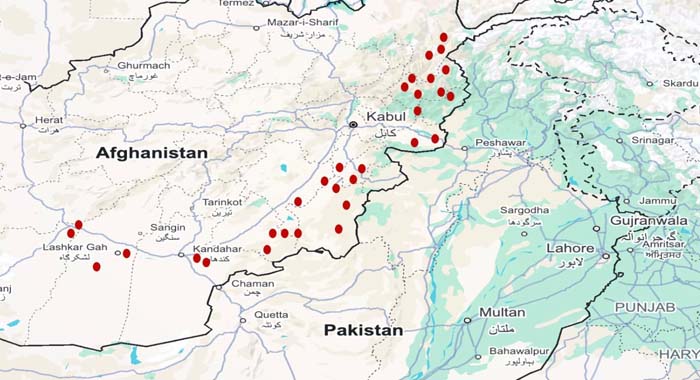Pakistan has expressed grave concern over the continued presence of dozens of terrorist camps and safe houses inside Afghanistan being operated by the banned Tehreek-e-Taliban Pakistan (TTP), Islamic State Khorasan Province (ISKP), Al-Qaeda, and the Balochistan Liberation Army (BLA), terming them a direct threat to regional stability and Pakistan’s national security.
Security officials revealed that these sanctuaries remain the breeding ground for cross-border attacks, targeted killings, and bombings that have claimed thousands of innocent lives in Pakistan over the past two decades. “These are the very elements that have orphaned our children, widowed our women, and spilled innocent blood on our soil,” an official said.
According to intelligence findings, the terrorists deliberately take shelter with their families, using women and children as human shields in an attempt to deter counter-terrorism operations. “This cowardly tactic is designed to provoke collateral damage and manufacture propaganda, but Pakistan will not allow its national security to be blackmailed,” the statement added.
Officials underscored that Pakistan has shown maximum restraint and extended every possible hand of cooperation to Kabul for peace and stability. However, the continued inaction against these groups has raised serious questions about Afghanistan’s commitments under international law, including the Doha Agreement and United Nations counter-terrorism resolutions.
Pakistan has already shared concrete evidence of the existence of these sanctuaries with relevant international partners. Diplomatic sources confirmed that Islamabad will intensify efforts to inform the global community about how Afghan soil is being misused against Pakistan in violation of repeated assurances by the Afghan authorities.
“Justice will be served, with resolve, not hesitation,” the statement concluded, reaffirming that Pakistan will take all measures necessary to safeguard its sovereignty and the lives of its citizens.





